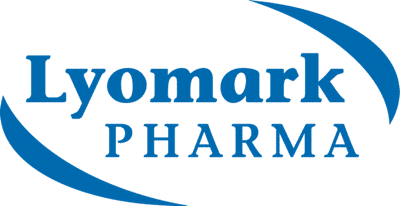预约演示
更新于:2025-05-07
SSTR5 x SSTR2 x SSTR4
更新于:2025-05-07
关联
4
项与 SSTR5 x SSTR2 x SSTR4 相关的药物作用机制 SSTR1激动剂 [+4] |
原研机构- |
最高研发阶段批准上市 |
首次获批国家/地区 加拿大 |
首次获批日期1997-11-10 |
作用机制 SSTR2激动剂 [+2] |
在研适应症 |
非在研适应症 |
最高研发阶段临床2期 |
首次获批国家/地区- |
首次获批日期1800-01-20 |
作用机制 SSTR1激动剂 [+4] |
在研机构- |
在研适应症- |
非在研适应症 |
最高研发阶段无进展 |
首次获批国家/地区- |
首次获批日期1800-01-20 |
18
项与 SSTR5 x SSTR2 x SSTR4 相关的临床试验CTIS2023-505791-30-01
A multicentric, randomized, double-blind, placebo-controlled trial to evaluate the efficacy of COLIRIOBCN070660 administered topically in patients with moderately severe to severe non-proliferative diabetic retinopathy - RETISOM
开始日期2024-05-08 |
申办/合作机构- |
NCT04138342
Fluorescent Nanoparticles Conjugated Long-acting Somatostatin Analog for Potent Suppression and Bioimaging Breast Cancer
Breast cancer is a communal malignant disease between Saudi females, with a popularity of 21.8%. Since binding to somatostatin receptors (SSTR) induces no immunogenicity in vivo, somatostatin analog (veldoreotide) (VELD) may be suitable for delivering anti-cancer drugs to target and bioimaging the cancer cells. This work aimed to deliver CdS/ZnS core-shell type quantum dots with carboxylic acid-functionalized (QDs-COOH) which is bioimaging and anticancer nanoparticles decorated VELD as SSTR agonist with anti-cancer activity in the form of topical cream to be deposited deep in the breast periphery.
开始日期2019-09-15 |
申办/合作机构 |
NCT03241706
Effect of Liver Glycogen Content on Hypoglycemic Counterregulation
The purpose of this research study is to learn more about how sugar levels in the liver affect the ability of people both with and without type 1 diabetes. People with type 1 diabetes do not make their own insulin, and are therefore required to give themselves injections of insulin in order to keep their blood sugar under control. However, very often people with type 1 diabetes give themselves too much insulin and this causes their blood sugar to become very low, which can have a negative impact on their health. When the blood sugar becomes low, healthy people secrete hormones such as glucagon and epinephrine (i.e., adrenaline), which restore the blood sugar levels to normal by increasing liver glucose production into the blood. However, in people with type 1 diabetes, the ability to release glucagon and epinephrine is impaired and this reduces the amount of sugar the liver is able to release.
People with type 1 diabetes also have unusually low stores of sugar in their livers. It has been shown in animal studies that when the amount of sugar stored in the liver is increased, it increases the release of glucagon and epinephrine during insulin-induced hypoglycemia. In turn, this increase in hormone release boosts liver sugar production. However, it is not known if increased liver sugar content can influence these responses in people with and without type 1 diabetes. In addition, when people with type 1 diabetes do experience an episode of low blood sugar, it impairs their responses to low blood sugar the next day. It is also unknown whether this reduction in low blood sugar responses is caused by low liver sugar levels.
The investigators want to learn more about how liver sugar levels affect the ability to respond to low blood sugar.
People with type 1 diabetes also have unusually low stores of sugar in their livers. It has been shown in animal studies that when the amount of sugar stored in the liver is increased, it increases the release of glucagon and epinephrine during insulin-induced hypoglycemia. In turn, this increase in hormone release boosts liver sugar production. However, it is not known if increased liver sugar content can influence these responses in people with and without type 1 diabetes. In addition, when people with type 1 diabetes do experience an episode of low blood sugar, it impairs their responses to low blood sugar the next day. It is also unknown whether this reduction in low blood sugar responses is caused by low liver sugar levels.
The investigators want to learn more about how liver sugar levels affect the ability to respond to low blood sugar.
开始日期2018-08-02 |
100 项与 SSTR5 x SSTR2 x SSTR4 相关的临床结果
登录后查看更多信息
100 项与 SSTR5 x SSTR2 x SSTR4 相关的转化医学
登录后查看更多信息
0 项与 SSTR5 x SSTR2 x SSTR4 相关的专利(医药)
登录后查看更多信息
104
项与 SSTR5 x SSTR2 x SSTR4 相关的文献(医药)2024-12-01·Computational and Structural Biotechnology Journal
Exploring key features of selectivity in somatostatin receptors through molecular dynamics simulations
Article
作者: Malloci, G ; Gervasoni, S ; Guccione, C ; Ruggerone, P ; Bosin, A ; Öztürk, I
2024-07-01·Veterinary Medicine and Science
Expression of somatostatin receptors in canine and feline meningioma
Article
作者: Gradner, Gabriele ; Wolfram, Michael ; Oevermann, Anna ; Tichy, Alexander ; Wolfesberger, Birgitt ; Immler, Martin ; Walter, Ingrid
2024-01-09·Journal of Chemical Theory and Computation
Using AlphaFold and Experimental Structures for the Prediction of the Structure and Binding Affinities of GPCR Complexes via Induced Fit Docking and Free Energy Perturbation
Article
作者: Friesner, Richard A ; Rodrigues, João P G L M ; Lihan, Muyun ; Vass, Márton ; Miller, Edward B ; Coskun, Dilek ; Robinson, Daniel
2
项与 SSTR5 x SSTR2 x SSTR4 相关的新闻(医药)2024-06-22
·生物探索
引言
生长抑素受体(Somatostatin receptors,SSTRs)是一类重要的G蛋白偶联受体(GPCRs),在调控多种激素分泌和抑制肿瘤生长等方面发挥关键作用,是治疗肢端肥大症、垂体腺瘤、神经内分泌肿瘤等疾病的重要靶点。SSTR5共有五种亚型(SSTR1-SSTR5),其中,SSTR5在垂体中高度表达,调控促肾上腺皮质激素、催乳素和生长激素等激素分泌,是相关内分泌疾病和肿瘤治疗的潜在靶点。
生长抑素(Somatostatin,SST)是SSTRs的天然配体,具有抑制生长激素、胰岛素、胰高血糖素等多种激素分泌的作用。SST通过与SSTRs结合,抑制腺苷酸环化酶(Adenylate Cyclase,AC)的活性,主要由抑制性G蛋白(Gi)介导,进而调控胞内cAMP浓度,将外源信号传递至胞内(图1A),影响多种激素的分泌和肿瘤的生长等过程。皮质抑素 (Cortistatin,CST) 是一种与所有SSTRs亚型亲和力很高的神经肽,与SST具有高度的结构同源性,CST在人体内发挥相同的SST内分泌活性,另外还具有抗炎症和抑制血管内皮细胞增殖作用,近年来多个课题组的研究相继揭示SST作用不同的SSTR2和SSTR4的分子机制,CST识别和调控SSTRs的作用机制尚不明确。
CST17在大脑皮层中表达水平较高,与SST14具有相同的半胱氨酸环状结构及与SSTR结合序列Phe-Trp-Lys-Thr (FWKT) (图2A-B),均能激活SSTR5,但其详细的激活机制仍未知。由于SST在血浆中的半衰期短,限制了其临床应用。FDA批准的生长抑素激动剂合成药物奥曲肽 (octreotide) 不仅对SSTR2具有较高亲和力,同时也能有效激活SSTR5,目前已用于治疗肢端肥大症和神经内分泌肿瘤等疾病。
尽管多种靶向SSTRs的SST类似物已经被开发出来用于临床。但由于SSTR亚型之间序列高度同源,开发出能够高选择性调控特定亚型并最大限度减少非靶向效应的药物仍然是一大挑战。SSTR5作为重要的药物靶点,阐明其与配体识别和激活的分子机制,对指导设计新型高选择性SSTR5激动剂具有重要意义。
2024年06月18日,中国科学院上海药物所徐华强/赵丽华研究员团队在PNAS在线发表了以Structural basis for activation of somatostatin receptor 5 by cyclic neuropeptide agonists为题的研究论文。该研究利用冷冻电子显微镜技术,首次解析了天然多肽激动剂CST17和临床抗肿瘤药物octreotide分别激活SSTR5并结合下游Gi蛋白的三维复合物结构,分辨率分别为2.7和2.9埃(图1B-G)。
图1 (A) 激动剂介导的SSTRs的G蛋白信号传导通路示意图。(B-C) CST17-SSTR5-Gi复合物冷冻电镜结构。(D-E) Octreotide-SSTR5-Gi复合物冷冻电镜结构。(F) CST17在结构中的密度图。(F) Octreotide在结构中的密度图。(Credit: PNAS)
该项研究发现,CST17和octreotide的结合会引起SSTR5中由TM3和TM6组成的“疏水锁”重排,并导致TM6向外运动,从而使Gαi蛋白与受体结合并启动下游信号传导(图2C-D)。结构和功能分析显示,SSTR5细胞外环坏区ECL2和ECL3对CST17和octreotide具有不同的识别模式(图2E-F),解释了它们作为激动剂的选择性差异,阐明了SSTR5的激活机制和与肽激动剂识别的分子基础,为针对SSTR5开发新型高选择性,低副作用的药物治疗肢端肥大症、神经内分泌肿瘤等相关疾病提供结构基础。
图2(A-B)内源肽和octreotide的结构和序列比对。(C) SSTR5中的"疏水锁"在结合激动剂后发生了构象重排。(D)功能数据验证关键氨基酸对CST17和octreotide激活SSTR5的影响。(E)两种复合物结构中ECL2构象的差异。(F)两种复合物结构中ECL3构象的差异。(Credit: PNAS)
参考文献
www.pnas.org/doi/10.1073/pnas.2321710121
责编|探索君
排版|探索君
文章来源|“BioArt”
End
往期精选
围观
一文读透细胞死亡(Cell Death) | 24年Cell重磅综述(长文收藏版)
热文
Cell | 是什么决定了细胞的大小?
热文
Nature | 2024年值得关注的七项技术
热文
Nature | 自身免疫性疾病能被治愈吗?科学家们终于看到了希望
热文
CRISPR技术进化史 | 24年Cell综述
细胞疗法
2023-12-17
前言AIDD Pro 根据国内外各大网站以及人工智能药物设计主流新闻网站及公众号,从 AIDD会议、AIDD招聘,重大科研进展、行业动态、最新报告发布等角度,分析挖掘了每周人工智能辅助药物设计领域所发生的、对领域技术发展产生重大推动作用的事件,旨在帮助 AIDD领域研究人员和业内人士及时追踪最新科研动态、洞察前沿热点。如果您觉得符合以上要求的内容我们有遗漏或者更好建议,欢迎后台留言。科研进展2023年12月15日【AlphaFold】J. Chem. Theory Comput. | 利用AlphaFold和实验结构通过诱导拟合对接和自由能摄动预测GPCR复合物的结构和结合亲和力2023年12月15日【SARS-CoV-2】J. Med. Chem. | 新型工程化人ACE2-Fc融合蛋白对泛SARS-CoV-22感染的体内外保护作用2023年12月14日【人工智能】J. Proteome Res. | 用人工智能分析20年的公共数据,绘制蛋白质组学和预测技术的趋势2023年12月14日【蛋白水解】ACS Chem. Neurosci. | N端标记方法的应用为体内朊蛋白的内源性蛋白水解提供了新的见解2023年12月13日【机器学习】Anal. Chem. | 用于抗癌药物筛选的机器学习辅助自动电化学可寻址细胞传感阵列2023年12月13日【抑制剂】J. Med. Chem. | 新型结核分枝杆菌ClpP1P2抑制剂的发现及机制研究具体信息,请滑动下方文字1.【AlphaFold】自由能摄动(FEP)仍然是一种不可缺少的方法,计算分析未来的化合物在合成前。然而,在FEP可以被应用之前,它必须展示已知实验数据的回顾性重述,其中原子配体-受体模型的微妙细节是重要的。一个悬而未决的问题是,在存在一系列相同的已知化学物质但没有实验结构的情况下,AlphaFold模型是否可以作为FEP的有用初始模型,无论是靶物质还是相近的同源物。由于AlphaFold结构没有结合配体,我们采用诱导拟合对接来改进存在一个或多个同源配体的AlphaFold模型。在这项工作中,我们首先在一组回顾性的公共实验GPCR结构上验证了我们最新的诱导适配对接技术IFD-MD的性能,在前两个预测中,95%的交叉对接产生了配体RMSD≤2.5 Å的姿势。然后,我们将IFD-MD和FEP应用于GPCRs生长抑素受体家族的AlphaFold模型。我们使用的AlphaFold模型是在该家族的任何实验结构可用之前产生的。我们得到了SSTR2、SSTR4和SSTR5的fep验证模型,RMSE约为1 kcal/mol,并探讨了在配体数据有限、配体数据充足和分类数据的情况下模型验证的挑战。链接网址:https://pubs.acs.org/doi/10.1021/acs.jctc.3c00839DOI:https://doi.org/10.1021/acs.jctc.3c008392.【SARS-CoV-2】未接种疫苗、老年人或免疫功能低下者持续发生严重COVID-19仍然是一项迫切需要。可溶性人血管紧张素转换酶2 (ACE2)已被用作抑制SARS-CoV-2感染的诱饵受体,但其亲和力有限。我们描述了一种工程化的、高亲和力的ACE2,它在组织培养中始终有效地中和所有测试的菌株,包括Delta和Omicron。我们还发现,用hACE2- fc受体诱饵治疗AC70 hACE2转基因小鼠可有效降低病毒感染,减轻组织病理,并延迟SARS-CoV-2感染引起的发病和死亡。我们认为,使用这种ACE2-Fc蛋白不太可能像那些中和抗体疗法那样频繁地促进SARS-CoV-2的逃逸突变体。总之,我们的研究结果强调了我们新设计的hACE2-Fc融合蛋白作为抗Pan-SARS-CoV-2感染的有效抗病毒药物的进一步开发的适用性。链接网址:https://pubs.acs.org/doi/10.1021/acs.jmedchem.3c01201DOI:https://doi.org/10.1021/acs.jmedchem.3c012013.【人工智能】利用人工智能和自然语言处理(NLP)对公开数据进行分析,揭示了近20年来生物技术的发展趋势。实施这种“科学的科学”方法,我们捕捉到了蛋白质组学领域在整个生命系统发育树的技术开发和应用方面的趋同趋势。随着时间的推移,我们对蛋白质组成,结构和位置的知识存在重大差距,我们报告了20年来PubMed 29种期刊语料库中94种观点中持续流行的方法和新兴技术的趋势。这些想法集群的新指标揭示了单细胞、空间、组成和化学蛋白质组学等新兴方法的发展和普及,这些方法旨在更好地捕捉蛋白质水平的化学和生物学。利用先进的分析工具对蛋白质组学文献进行分析,量化了下一代技术的增长速度,以更好地定义、量化和可视化蛋白质组的多个维度,这将改变我们在未来十年测量和理解蛋白质的能力。链接网址:https://pubs.acs.org/doi/10.1021/acs.jproteome.3c00430DOI:https://doi.org/10.1021/acs.jproteome.3c004304.【蛋白水解】细胞朊病毒蛋白(PrPC)中心区域的α-和β-选择性切割事件产生具有不同生化特征的片段,影响朊病毒疾病的发病机制,但精确切割位置的分配已被证明具有挑战性。利用表达野生型(WT) PrPC和八重复区突变等位基因(S3)的小鼠转基因模型,利用LC-MS /MS结合n端酶标记和化学凝胶内乙酰化,确定了裂解位点。我们的研究描述了成人大脑的净蛋白水解库,通过定义其他蛋白质中的数百个蛋白水解事件推断,并定位了PrPC α和β靶区的单个裂解事件,这些裂解事件来自早期的低分辨率方法;后者的分析确定了位点的异质性,WT PrPC的β-切割区有6个切割位点,S3 PrPC有9个切割位点。关于α-裂解,除了报道的His110和Val111的n端外,我们在两种小鼠的大脑中发现了5个较短的片段。我们推断脑内的氨基肽酶活性可能导致PrPC α-和β-裂解位点周围观察到粗糙的n端,这项工作为进一步的脑蛋白酶体内研究提供了一个出发点。链接网址:https://pubs.acs.org/doi/10.1021/acschemneuro.3c00533DOI:https://doi.org/10.1021/acschemneuro.3c005335.【机器学习】高通量和准确的抗癌药物筛选对候选药物的临床前评估至关重要,并且仍然具有挑战性。本文报道了一种用于有效筛选抗癌药物的自动电化学寻址细胞传感器(AEAC)。该传感器由对H2O2具有高电催化活性的菱形TiO2和球形Pt纳米颗粒(ligi -TiO2 - Pt)装饰的激光诱导的分层石墨烯阵列和固定在机械臂上的自制Ag/Pt电极对组成。将层粘连蛋白固定在ligi - tio2 - pt表面,可以促进其对各种肿瘤细胞生长和增殖的生物相容性,从而可以对这些活细胞直接释放的H2O2进行原位监测,用于药物筛选。采用机器学习(ML)算法消除AEAC可能存在的随机或系统误差,实现对不同类型抗癌药物的快速、高通量、准确预测。这种ml辅助的AEAC为加速感知服务肿瘤治疗的发展提供了一种强有力的方法。链接网址:https://pubs.acs.org/doi/10.1021/acs.analchem.3c05178DOI:https://doi.org/10.1021/acs.analchem.3c051786.【抑制剂】Caseinolytic protease P (ClpP)负责蛋白质水解受损或错误折叠的蛋白质,在蛋白质组稳态中起关键作用。MtbClpP1P2是一种ClpP酶复合物,是结核分枝杆菌存活所必需的,因此被认为是开发抗结核药物的一个有希望的靶点。在这里,我们发现cediranib及其一些衍生物是有效的MtbClpP1P2抑制剂,并抑制结核分枝杆菌的生长。蛋白下拉和功能缺失实验验证了cediranib及其活性衍生物原位靶向MtbClpP1P2。结构和突变研究表明,cediranib通过结合MtbClpP1P2亚基赤道柄结构域的变弹性口袋与MtbClpP1P2结合,与其他已知的ClpP调节剂相比,这代表了一种独特的结合模式。这些发现为抗结核药物的合理设计提供了见解,并对我们了解MtbClpP1P2的生物活性具有重要意义。链接网址:https://pubs.acs.org/doi/10.1021/acs.jmedchem.3c01054DOI:https://doi.org/10.1021/acs.jmedchem.3c01054上下滚动查看更多药企动态2023年12月16日【阿斯利康】阿斯利康凝血新药在华申报上市2023年12月15日【阿斯利康】阿斯利康CD19/CD3双抗在华申报临床2023年12月15日【拜耳】每4个月一次!拜耳/再生元阿柏西普8mg在华申报上市2023年12月15日【辉瑞】超10亿美元!诺纳生物MSLN ADC独家授权给辉瑞2023年12月14日【恒瑞】恒瑞1类新药申报上市,预防化疗后恶心呕吐2023年12月14日【和誉医药】和誉医药创新CSF-1R抑制剂Pimicotinib获得FDA快速通道认定各动态具体信息,请滑动下方文字1.【阿斯利康】12月16日,CDE网站显示,阿斯利康的andexanet alfa上市申请获药监局受理,该产品可用于逆转Xa因子抑制剂的抗凝作用。Andexanet alfa是一种经过修饰的人凝血因子Xa(FXa)蛋白质,专门设计用于与FXa抑制剂结合并迅速逆转其抗凝作用,可以阻碍天然FXa与FXa抑制剂的结合,从而恢复正常的止血过程。链接网址请戳我2.【阿斯利康】12月15日,CDE官网公示,AstraZeneca的AZD0486申报临床,旨在评估AZD0486在患有复发性或难治性 B 细胞急性淋巴细胞白血病的青少年和成人参与者中的安全性和有效性。链接网址请戳我3.【拜耳】12月15日,CDE官网显示,拜耳的阿柏西普眼内注射溶液上市申请已获受理,推测此次申报上市的为阿柏西普高剂量8mg版本。阿柏西普是拜耳和再生元联合开发的一款VEGFR-Fc融合蛋白。再生元保留阿柏西普在美国的专有权,拜耳获得美国以外的独家营销权。链接网址请戳我4.【辉瑞】12月15日,和铂医药全资子公司-诺纳生物(Nona Biosciences)今日宣布,已与辉瑞下Seagen就Nona的靶向人间皮素(MSLN)抗体偶联药物(ADC)HBM9033的全球临床开发和商业化签订独家授权协议。链接网址请戳我5.【恒瑞】12月14日,恒瑞子公司盛迪医药研发的注射用HR20013申报上市,用于预防高致吐性化疗引起恶心呕吐。化疗后的恶心呕吐(CINV)是最常见的化疗不良反应之一,发生率高达60%-80% ,可分为急性、迟发性、预期性、突破性和难治性5类。其中急性 CINV发生在接受化疗后24小时内,延迟性CINV在化疗24小时后发生。CINV会降低患者对治疗的依从性,在身体方面使患者代谢失衡、营养不良、体重减轻,严重影响患者的生活。因此预防化疗后急性和延迟性恶心、呕吐至关重要。链接网址请戳我6.【和誉医药】12月14日,和誉医药宣布,其创新CSF-1R抑制剂Pimicotinib(ABSK021)获FDA授予快速通道认定(Fast Track Designation)用于治疗不可手术的腱鞘巨细胞瘤(“TGCT”)。此前,Pimicotinib于今年1月获得FDA授予的突破性疗法认定(Breakthrough Therapy Designation)。快速通道认定及突破性疗法认定将加速Pimicotinib在全球上市的步伐。链接网址请戳我上下滚动查看更多会议信息2024年2月28-29日 举办AntibodyChina 第七届抗体药物深度聚焦峰会2024年3月21-22日 上海恺默信息咨询有限公司举办SIT 2024第六届小分子药物创新与合作大会2024年3月21-22日 上海恺默信息咨询有限公司举办PDD 2024多肽药物产业发展大会2024年6月27-28日 举办上海求实医药咨询有限公司ING 2024第七届免疫及基因治疗论坛各会议具体详情和参会方式,请滑动下方文字AntibodyChina 第七届抗体药物深度聚焦峰会会议时间:2024年2月28-29日会议地点:上海会议主旨:峰会议题跨越抗体药物研发的最前沿,追踪最新的临床进展,致力于打破行业的封闭循环,破除行业内卷,助推创新多元发展!一切尽在抗体药物的年度产业大会!链接网址请戳我SIT 2024第六届小分子药物创新与合作大会主办方: 上海恺默信息咨询有限公司会议时间:2024年3月21日-22日会议地点:上海会议主旨:峰会议题跨越小分子药物研发的热点领域,一览当下化学创新药研发新动向,致力于打破行业的封闭循环,破除行业内卷,助推创新多元发展!一切尽在小分子药物的年度产业大会!链接网址请戳我PDD 2024多肽药物产业发展大会主办方: 上海恺默信息咨询有限公司会议时间:2024年3月21日-22日会议地点:上海会议主旨:共谈多肽减重药物、多肽药物的法规与申报、开发案例与趋势、CMC 各个环节中的难点与挑战。力求为多肽企业致力于多肽药物研究的专家及科研人员提供一个深度的思想碰撞及经验分享平台。链接网址请戳我ING 2024第七届免疫及基因治疗论坛主办方:上海求实医药咨询有限公司会议时间:2024年6月27日-28日会议地点:北京会议主旨:聚焦CGT领域开发的核心问题,破除技术壁垒,推动产业不断前进,开启生物医药产业下一个风口!链接网址请戳我上下滚动查看更多版权信息本文内容均由小编收集于公开的各个网络平台,发布的目的仅为了方便大家一站式了解AIDD行业信息,并未对发布源头进行真实性验证。如您发现相关信息有任何版权侵扰或者信息错误,请及时联系AIDD Pro(请添加微信号sixiali_fox59)进行删改处理。原创内容未经授权,禁止转载至其他平台。有问题可发邮件至sixiali@stonewise.cn关注我,更多资讯早知道↓↓↓
临床1期
分析
对领域进行一次全面的分析。
登录
或

生物医药百科问答
全新生物医药AI Agent 覆盖科研全链路,让突破性发现快人一步
立即开始免费试用!
智慧芽新药情报库是智慧芽专为生命科学人士构建的基于AI的创新药情报平台,助您全方位提升您的研发与决策效率。
立即开始数据试用!
智慧芽新药库数据也通过智慧芽数据服务平台,以API或者数据包形式对外开放,助您更加充分利用智慧芽新药情报信息。
生物序列数据库
生物药研发创新
免费使用
化学结构数据库
小分子化药研发创新
免费使用




